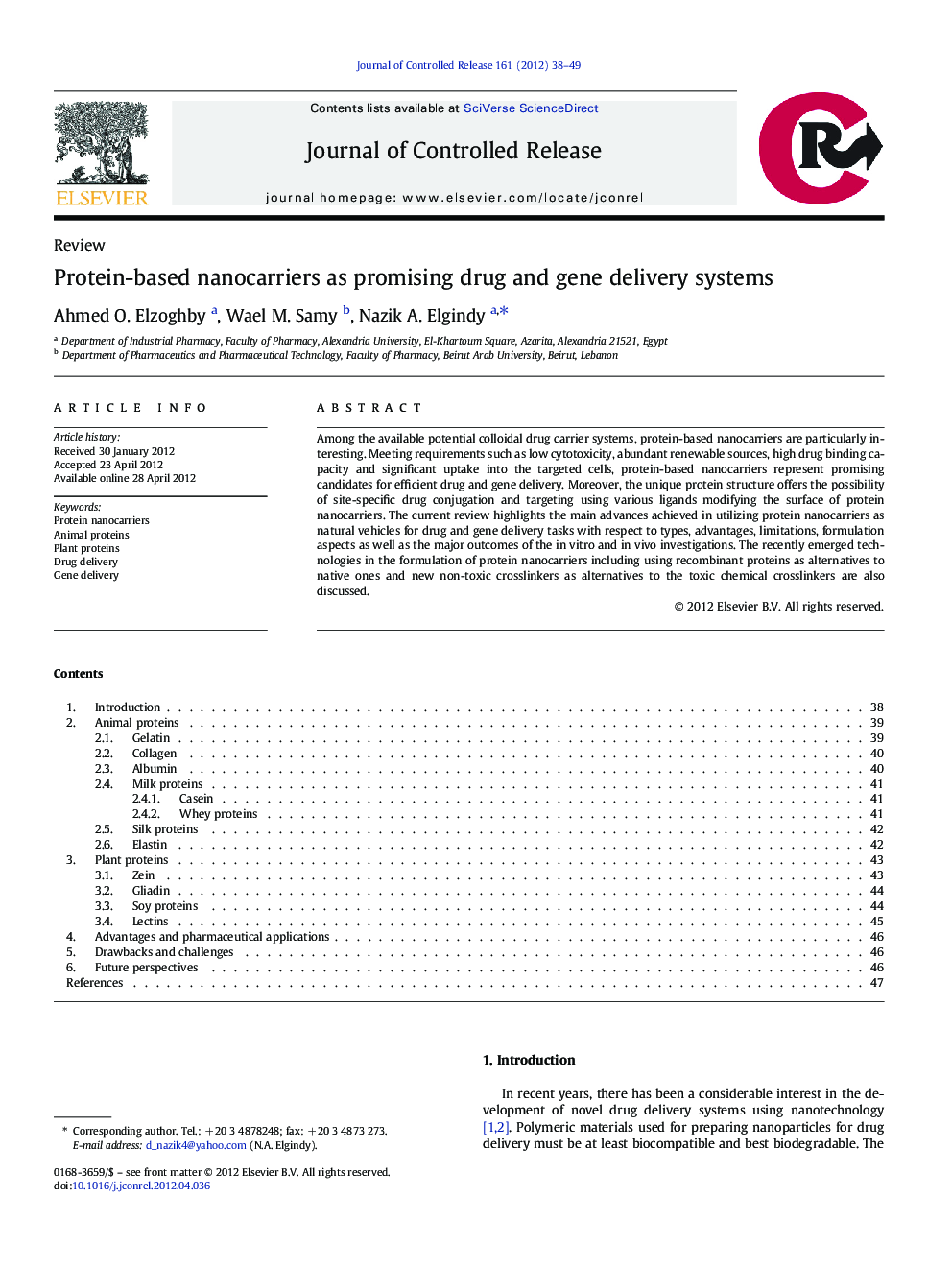| Article ID | Journal | Published Year | Pages | File Type |
|---|---|---|---|---|
| 1424550 | Journal of Controlled Release | 2012 | 12 Pages |
Among the available potential colloidal drug carrier systems, protein-based nanocarriers are particularly interesting. Meeting requirements such as low cytotoxicity, abundant renewable sources, high drug binding capacity and significant uptake into the targeted cells, protein-based nanocarriers represent promising candidates for efficient drug and gene delivery. Moreover, the unique protein structure offers the possibility of site-specific drug conjugation and targeting using various ligands modifying the surface of protein nanocarriers. The current review highlights the main advances achieved in utilizing protein nanocarriers as natural vehicles for drug and gene delivery tasks with respect to types, advantages, limitations, formulation aspects as well as the major outcomes of the in vitro and in vivo investigations. The recently emerged technologies in the formulation of protein nanocarriers including using recombinant proteins as alternatives to native ones and new non-toxic crosslinkers as alternatives to the toxic chemical crosslinkers are also discussed.
Graphical abstractFigure optionsDownload full-size imageDownload high-quality image (107 K)Download as PowerPoint slide
